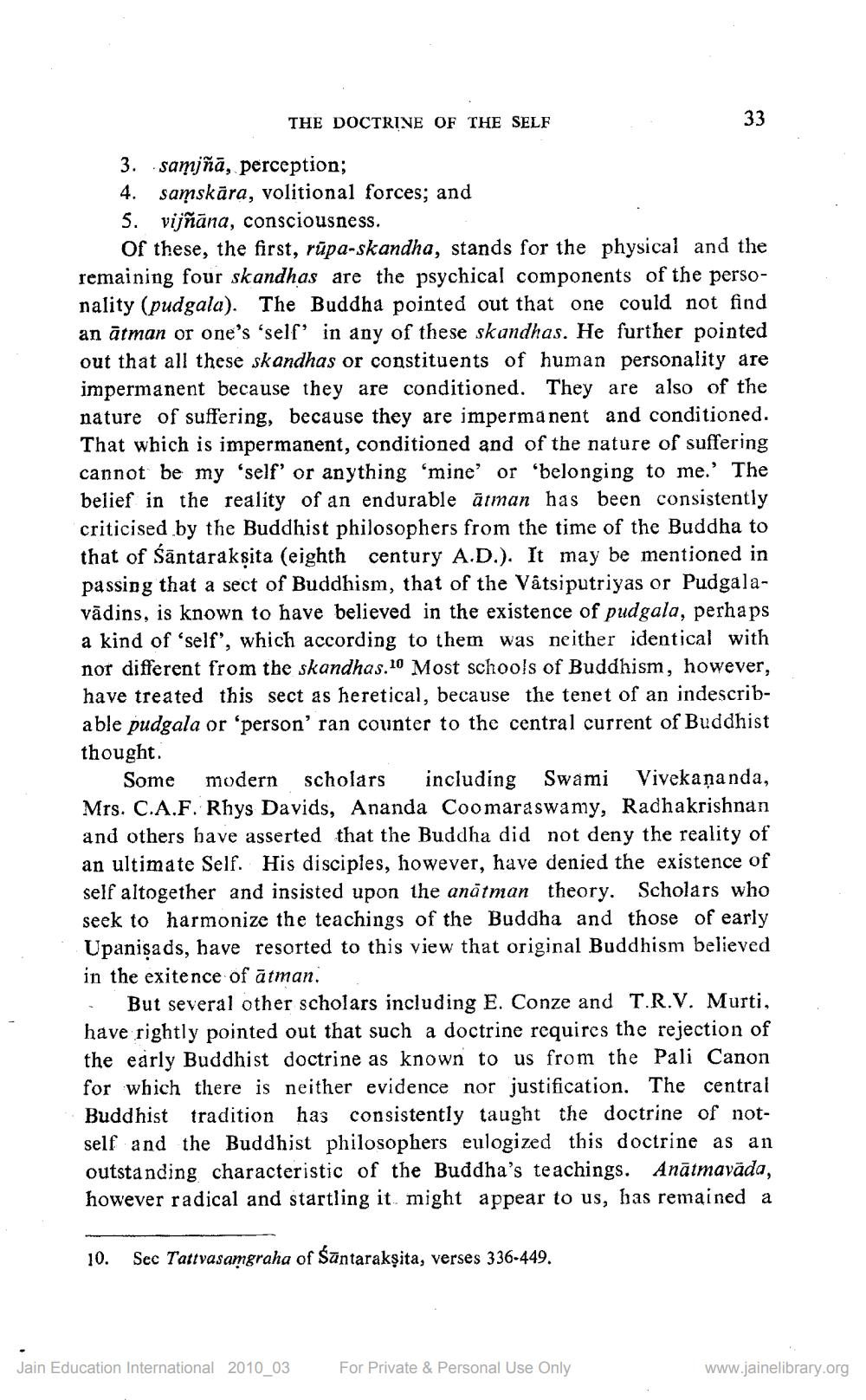________________
THE DOCTRINE OF THE SELF
33
3. samjñā, perception; 4. samskāra, volitional forces; and 5. vijñāna, consciousness.
Of these, the first, rūpa-skandha, stands for the physical and the remaining four skandhas are the psychical components of the personality (pudgala). The Buddha pointed out that one could not find an ātman or one's 'self' in any of these skandhas. He further pointed out that all these skandhas or constituents of human personality are impermanent because they are conditioned. They are also of the nature of suffering, because they are impermanent and conditioned. That which is impermanent, conditioned and of the nature of suffering cannot be my 'self' or anything ‘mine' or 'belonging to me.' The belief in the reality of an endurable ātman has been consistently criticised by the Buddhist philosophers from the time of the Buddha to that of śāntarakṣita (eighth century A.D.). It may be mentioned in passing that a sect of Buddhism, that of the Vätsiputriyas or Pudgalavādins, is known to have believed in the existence of pudgala, perhaps a kind of 'self', which according to them was neither identical with nor different from the skandhas.10 Most schools of Buddhism, however, have treated this sect as heretical, because the tenet of an indescribable pudgala or 'person' ran counter to the central current of Buddhist thought.
Some modern scholars including Swami Vivekananda, Mrs. C.A.F. Rhys Davids, Ananda Coomaraswamy, Radhakrishnan and others have asserted that the Buddha did not deny the reality of an ultimate Self. His disciples, however, have denied the existence of self altogether and insisted upon the anātman theory. Scholars who seek to harmonize the teachings of the Buddha and those of early Upanişads, have resorted to this view that original Buddhism believed in the exitence of ātman.
But several other scholars including E. Conze and T.R.V. Murti, have rightly pointed out that such a doctrine requires the rejection of the early Buddhist doctrine as known to us from the Pali Canon for which there is neither evidence nor justification. The central Buddhist tradition has consistently taught the doctrine of notself and the Buddhist philosophers eulogized this doctrine as an outstanding characteristic of the Buddha's teachings. Anātmavāda, however radical and startling it might appear to us, has remained a
10.
See Tattvasamgraha of śāntarakṣita, verses 336-449.
Jain Education International 2010_03
For Private & Personal Use Only
www.jainelibrary.org




